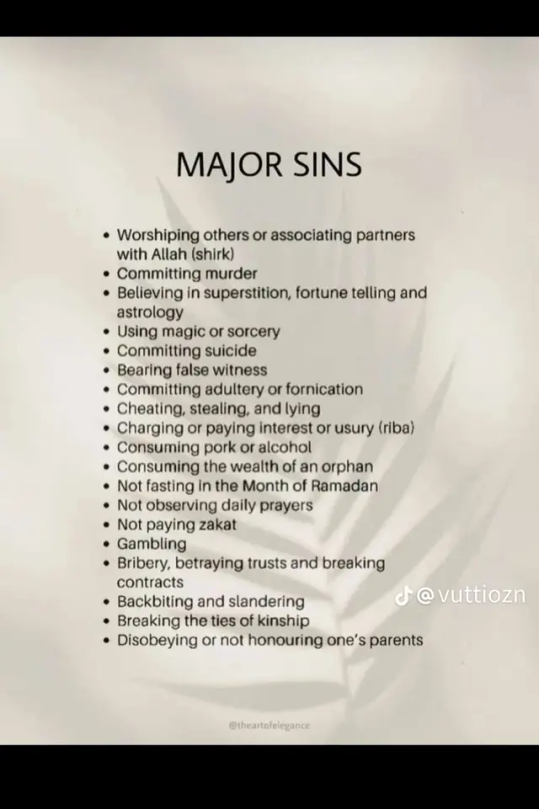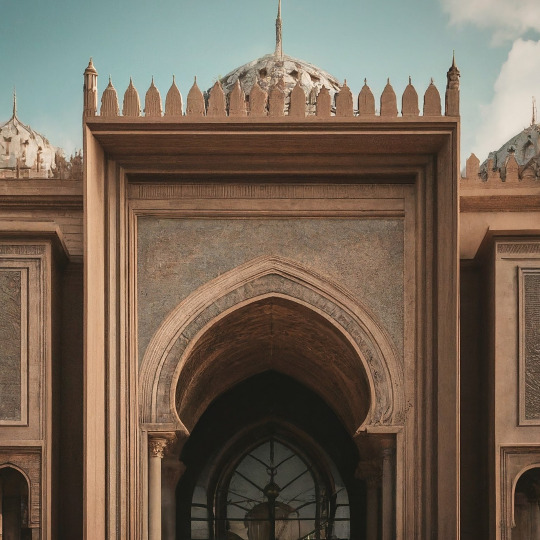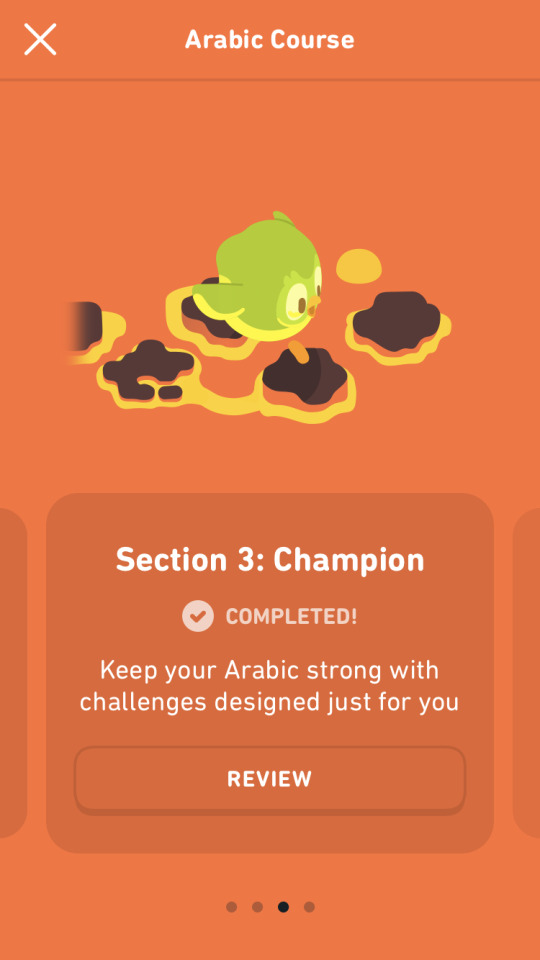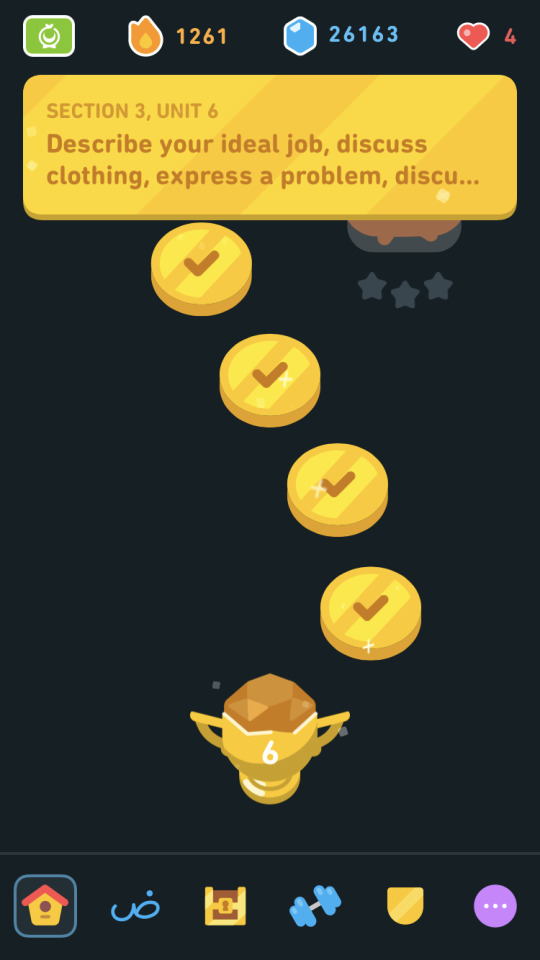#quranic lessons
Text
It was losing the fish which made Musa (as) find Al-Khidr.
8 notes
·
View notes
Text
When will the help of Allah arrive?
The revelation of Surah Al-Ankabut occurred when Muslims faced severe oppression. Once Prophet Muhammad (peace be upon him) began preaching Islam publicly, his few followers quickly found that professing faith meant facing ruthless torture and execution. Men from the Mecca like Abu Bakr (ra), were beaten unconscious in the streets, while slaves like Bilal b. Rabah (ra) and Suhayb b. Sinân (ra) were shackled and left to scorch in the midday desert sun.
The conditions had become extremely unfavorable, and a noble companion was tortured with burning coals without clothes. They took him to hot, open areas in the city when the sun was very strong. It was scorching on the ground. They removed his clothes, put iron armor on him, and laid him on the hot ground. Because of the intense heat, his skin would burn, and his body would become still. His skin melted due to the extreme conditions, and he went to Prophet Muhammad (peace be upon him), asking, "Why isn't Allah's help coming, considering what we are going through?"
Then, the verses of Surah Al-Ankabut were revealed. When Surah Al-Ankabut was revealed, its initial verses emphasized patience. The first verses addressed the companions, saying, “Do people think once they say, “We believe,” that they will be left without being put to the test? We certainly tested those before them. And ˹in this way˺ Allah will clearly distinguish between those who are truthful and those who are liars.”
After this, the mention of Prophet Noah began, highlighting that he had to endure centuries of waiting, and eventually, Allah's help came through the flood. After that, the mention of Prophet Abrahim followed, who faced difficulties from his own people and was saved from the fire.
Then the story of Prophet Lut is mentioned. Prophet Lut was also supposed to migrate. However, at that point, the command for migration had not yet been given. Prophet Lut would be questioning when the command would come and when they would leave this place.
After a long period of patience, finally, the angels came, and the command for migration was given.
Allah, through these stories, was conveying to Prophet Muhammad (peace be upon him) that just as He helped all those previous prophets, He would help them too. However, they needed to be patient and wait, just as all of them had to wait.
This Surah gives us hope that help would surely come, and it would come in a way one cannot anticipate. All we have to do is wait patiently.
#allah#islamdaily#quran#ayah from quran#lessons from quran#islam#islamicreminder#motivating quotes#prophetsaw#islamicquotes#islampost#islamicreminders#islamic quotes#deen daily#deenislam#palestine
65 notes
·
View notes
Text
حب الدنيا رأس كل خطيئة
The love of this world is the root of all evil
51 notes
·
View notes
Text
People have gone through miserable times across the history of Mankind just for standing firm upon Islamic principles of Tawheed and justice! Even the people of highest character and piety i.e. the Prophets, themselves went through such scenarios. Some incidents have been covered in the Islamic tradition in order to inculcate among the Muslim masses the concept of trial, test, affliction and tribulation! And through this one becomes spiritually oriented with the difficult times one is going to have in this life!
Allah Azawajal says, "And We will surely test you with something of fear and hunger and a loss of wealth and lives and fruits, but give good tidings to the patient."
Surah Baqarah V. 155
#palestine#islam#islamic#muslim#quran#free gaza#free palestine#ramadan#ramadhan#islampost#prophet muhammad#india#pakistan#life#life quotes#life lessons#spirtualgrowth#spirituality#holy quran#quran kareem#quran ayah#quotes#quoteoftheday
25 notes
·
View notes
Text
Shouldn't we be grateful to Allah ﷻ for being there with us every second?
Unlike others, we don't have to find people to tell us what we feel!
We have Allah ﷻ, Subhan' Allah 🥺
It doesn't matter if you're happy, sad, angry, depressed, or anxious, Allah ﷻ is always there to hear us out!🥺
Yet we take it for granted.😓
May Allah ﷻ forgive us and make us among those who He loves, Aameen.🤍

-اقرأ
#islam#islamdaily#islamic reminder#allah#quran#quranquotes#peace#islamiyet#self healing#muslim#patience#life quote#quranandsunnah#quranic#quran kareem#life lessons#life quotes#quoteoftheday#islamicreminders#islamicquotes#islamic#tumblr#writers on tumblr#trending#new post#viralpost#kindness#free palestine
21 notes
·
View notes
Text


Some sins you should try to avoid doing in Islam.
15 notes
·
View notes
Text
Islamic Governance &Exemplifying Justice with the parable of Salah ad-Din Ayyubi

Sultan Salah ad-Din Ayyubi, widely known as Saladin, stands as a paragon of Islamic governance, embodying the principles of justice, compassion, and wisdom. His reign serves as a testament to the beauty of Islam’s approach to governance, drawing inspiration from the teachings of Prophet Muhammad (ﷺ) and the Quran.
Justice in Islamic Governance
Saladin’s commitment to justice mirrors the core Islamic principle of fairness and equity. The Quran highlights in Surah An-Nisa (4:135):
“O you who have believed, be persistently standing firm in justice, witnesses for Allah, even if it be against yourselves or parents and relatives.”
This profound verse underscores the paramount importance of upholding justice, even if it conflicts with personal interests. The Hadith of Prophet Muhammad (ﷺ) also echoes this sentiment:
Allah’s Messenger (ﷺ) said, “Help your brother, whether he is an oppressor or he is an oppressed one. People asked, “O Allah’s Messenger (ﷺ)! It is all right to help him if he is oppressed, but how should we help him if he is an oppressor?” The Prophet (ﷺ) said, “By preventing him from oppressing others.”
This approach to justice, irrespective of one’s position, exemplifies the inherent beauty of Islamic governance.
The Legacy of Ali and Nur ad-Din Zengi
The legacy of Ali ibn Abi Talib, the cousin and son-in-law of Prophet Muhammad(ﷺ), and Nur ad-Din Zengi, the influential ruler of Syria, further enriches the narrative of justice in Islamic governance. Both figures, renowned for their adherence to justice, famously attended court proceedings to personally adjudicate disputes, echoing the tradition of Prophet Muhammad (ﷺ), who was known to resolve disputes with fairness and compassion. Their actions exemplify the prophetic tradition, where the Prophet Muhammad (ﷺ) stated,
“The most beloved of people according to Allah is he who brings most benefit, and the most beloved of deeds according to Allah is that you bring happiness to a fellow Muslim, or relieve him of distress, or pay off his debt, or stave away hunger from him.”
Compassion and Wisdom
Islamic governance, as epitomized by Saladin, Ali, and Nur ad-Din Zengi, is underpinned by compassion and wisdom. The Quran advocates for benevolence and empathy, stating in Surah Al-Baqarah (2:195) “And do good; indeed, Allah loves the doers of good.” This principle is echoed in the Hadith, where the Prophet Muhammad (ﷺ) emphasized, “The merciful will be shown mercy by the Most Merciful. Be merciful to those on the earth and the One in the heavens will have mercy upon you.” The integration of compassion and wisdom in governance, as demonstrated by these exemplary leaders, encapsulates the enduring beauty of Islamic principles.
By embodying the values of justice, compassion, and wisdom, these figures have etched an indelible mark on history, serving as timeless beacons of Islamic governance’s magnificence.
To learn more about Islam visit: Howtomuslim.org
References:
Biography of Salah ad-Din Ayyubi by Bahā’ ad-Dīn Yusuf ibn Rafi ibn Shaddād
#muslim#islamdaily#islamic#allah#quran#islamiyet#islamicreminders#islam#mosque#new article#saladinspiration#history lesson
11 notes
·
View notes
Text
i did it… i finally finished the english->arabic course


only took me three years give or take 😅
#well. until the next update hopefully#bc imo this course is very limited#it only teaches two tenses and it doesn’t even touch on the dual pronouns or any of that#and it’s quranic/classical so you learn all the short vowels which doesn’t help you learn colloquial arabic#which makes sense as an msa course but still#and all of the helpful grammar charts and vocab lists are hidden or only found on the pc format which is super inconvenient#they also need to make changes on the last few units or so bc those were just dozens of the same few lessons each time#and it was very annoying to not be learning anything new for a large chunk of this course#ever since the last update removing the tree it all got messed up and claimed i made further progress than i actually did#so. next step i should probably get proper grammar books and avtually practice with my colleagues#duolingo#languages#arabic#my posts
8 notes
·
View notes
Text
Mandarin Reading Material Recommendation
Wed Sep 13 2023
Topic: Religion
If you are religious or enjoy studying various religions there are mandarin translations of the most popular religious texts and possibly more! It's best if you've already read these texts in your native language though, it helps with context to learn faster.
Here's some links:
Bible (Simplified) (Traditional)
Quran (Simplified) / (Simplified) (Traditional)
Dao De Jing (Simplified) (Traditional)
Tripitaka (Simplified) (Traditional)
#chinese langblr#mandarin langblr#learn chinese#chinese lesson#chinese vocab#chinese to english#religious language#religious texts#religious studies#religion study#中文#聖經#古蘭經#繁體字#bible#old testament#quran#koran#tripitaka#dao de jing#daoism#christianity#islam#buddhism#language learning material
12 notes
·
View notes
Text
Yesterday a man was saying that we don't know where Allah is. We never saw Him. We heard from Rasool Allah pbuh that we should worship Allah so we are worshiping Allah - The Supreme Lord. Allah claims to be the Only God and the owner of whatever is in between earth and sky and whatever Allah knows is owned by Him. We never met Allah. But we have the words of Allah( The Qur'an). Like Allah literally talks to us in the Quran and guides us and teaches us. Ever thought like that? Like the Quran is not just a religious book it's the words of Allah swt which we can read. Even the worst muslim like me .
Another person says whenever I read the Qur'an. I read it because it's the words of my beloved Allah and I feel like I'm talking to Allah directly through the Quran.
And another person says " The way Allah listens to your recitation of the Quran Allah doesn't listen to anything like that. Isn't it satisfying and beautiful?
#quranquotes#online quran lessons#quran translation#quran or hadiths#quransayings#learn quran online#quranandsunnah#online quran academy#al quran#quranverses#islamicpost#islamic#islam help#quotes#muslim
3 notes
·
View notes
Text
سَتَجِدُنِىٓ إِن شَآءَ ٱللَّهُ صَابِرًۭا
“You will find me patient, Allah willing,”
(Quran 18:69)
7 notes
·
View notes
Text
The one best thing that I have done for myself is building a relationship with the book of Allah. A relationship that compels me to open the Quran at least once a day. This has been my goal for a very long time, and it has done wonders for me. I want to share how I have created this habit because Ramadan is here, and we all need this.
1. I started reading one ayah per day with tafsir. Just one. No more. Even if I wanted to read more, I stopped myself. Because if I get overwhelmed, Shaytan will make it really hard for me to resume. My goal has been to read at least one ayah but read Quran daily, without any breaks. Reading just one ayah with tafsir and while taking notes hardly takes 10-15 minutes. So, it gets easy and does not take much time. You can easily start your Quran journey with this approach.
2. I have not set a scheduled time - nope! I will read at 1 am, sometimes at 3 am if that's when I get done with everything else, and sometimes in the afternoon if that's the only time I can take out of my schedule to read the Quran. The goal is to read daily, not read only after Fajr. I mean, it's awesome if you can do it, but since I struggle with this, I have not restricted myself. This has made a significant difference in my Quran journey.
3. I am taking it slow. I am not in a rush to complete the entire Quran in a month or year. My goal is to learn it thoroughly, not complete it in a given time frame. So, with no rush and no time bomb ticking over my head, I feel comfortable and easy to stay connected with the Quran.
4. Look up your favorite Ustadh or course - for me, it's always been Ustadh Nouman Ali Khan. So, I have subscribed to Bayyinah, which means I know what I am going to read today, I know the next lesson is saved there, I don't have to create a timetable or a schedule of what to read and how to read. It's all available in the Bayyinah app. Simply login, play the video, and start learning.
That's it. Just simple 4 steps. Nothing big. So, Ramadan Kareem, and may this month become an opportunity for you to build a long-lasting relationship with the Quran. Ameen Ya Rab.
#ramadan#ramadankareem#ramadan2024#allah#islamdaily#islamicreminder#islamicquotes#lessons from quran
30 notes
·
View notes
Text
who is sending anti-Islam hate on anon and how do they expect me to respond
#there's too much stuff to correct I'd have to start quoting the Quran just to go against the flatearther allegations#is that what anon wants#you want an Arabic lesson anon??#because I would bring numbered citations out of spite i actually love studying this stuff#maybe i will but rn i'm just not going to answer such messages for someone who won't even ask nicely#throw in a please next time and i'll tell you about how some words have *context* and *translations do well to have that*#i'll even tell you about the Quranic descriptions of the expanding universe and orbits but you've got to say please#treat your tongue better#don't disrespect someone's religion/religious text by lying about it
2 notes
·
View notes
Text
i have to be one of the dumbest people alive
#this happens every single time like this entire week i was going insane out of my mind and i thought to myself haha this happens all the#time when im pmsing but im sure im just being irrational rn like this whole week. ive been whining and crying and cramping and hurting#in weird places and getting bloated and all these things and i was like well ig im just being hysterical maybe i need to go outside#and honestly going outside did help a little but today like. for so long i was like DAMN this really genuinely feels like im pmsing#like i could actually be on my period. it feels like it. LMAO. but i know thats not true 🥰. i went the whole day like that doing wudhu#and praying and reading quran like that thinking everything was fine because i was being irrational and guess what i found tonight 😐#i really dont understand how after this long of doing stupid shit like this i havent learned my lesson yet but here we are ig#hanancouldyounot
3 notes
·
View notes
Text
The issue with some Muslims in our community is that they may feel envious of other Muslims' accomplishments. Totally NO OFFENCE.
From my own life experiences, it has become clear that there are people who are unable to accept the fact that we are achieving success in various aspects of our lives. It is imperative that we do not let their egoistic behavior hinder our progress and instead, continue to strive for excellence.
I mean, why can't we lift each other as brothers and sisters? Why can't we encourage and inspire each other with our Muslim role models?
I know we're not perfect, but we can strive to be better. Let's work towards building a better world and pleasing Allah SWT.
It will take time but better late than never, InSha Allah.
-اقرأ
#islam#islamdaily#islamic reminder#allah#quran#peace#quranquotes#islamiyet#self healing#muslim#tumblr#writers on tumblr#islamicreminders#islamicquotes#islamic#life quote#life#life quotes#life lessons#muslim community#quranandsunnah#quranic#quran kareem#fypシ#fyp#tumblr fyp#trending#viralpost#new post#100 likes
14 notes
·
View notes
Text

Quran (18:28)
dan janganlah kamu mengikuti orang yang hatinya telah Kami lalaikan dari mengingati Kami, serta menuruti hawa nafsunya dan adalah keadaannya itu melewati batas.
และเจ้าอย่าเชื่อฟังผู้ที่เราทำให้หัวใจของเขาละเลยจากการรำลึกถึงเรา และปฏิบัติตามอารมณ์ต่ำของเขา และกิจการของเขาพินาศสูญหาย
Kalbini zikrimizden gafil kıldığımız, heva/arzularına uymuş ve işi taşkınlık olan kimseye itaat etme!
سی ایسے شخص کی اطاعت نہ کرو ، جس کے دل کو ہم نے اپنی یاد سے غافل کردیا ہے اور جس نے اپنی خواہش نفس کی پیروی اختیار کرلی ہے اور جس کا طریق کا افراط وتفریط پر مبنی ہے۔
#islam#islamquotes#quran#quranquotes#قرآن كريم#islamic design#life lessons#ex muslim#social media obsession#social media addiction#daily verse
24 notes
·
View notes